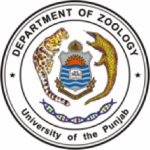Antioxidants play a crucial role in protecting cells from oxidative damage, which is implicated in various diseases such as diabetes, cancer, and inflammation. In this study, we investigated the antioxidant potential of extracts obtained from Crab Himalayapotamon emphysetum using various in vitro assays. Different solvents of varying polarities including ethanol, methanol, ethyl acetate, and water were employed for extraction. The results demonstrated significant antioxidant activity across different extracts in different in vitro assays. Particularly, the aqueous extract exhibited potent 1,1-diphenyl-2-picryl-hydrazyl (DPPH) radical scavenging activity compared to other extracts. Similarly, the aqueous extract displayed high anti-OH* activity in the H2O2 assay. In contrast, the ethanolic extract showed superior antioxidant potential in the ferric cyanide (Fe3+) reducing assay compared to ethyl acetate and aqueous extracts. Furthermore, all extracts exhibited antioxidant properties in the nitric oxide (NO) scavenging assay, with the ethanolic extract showing significant dose-dependent activity. Overall, our findings suggest that both aqueous and ethanolic extracts possess substantial antioxidant potential, warranting further validation through in vivo experiments and clinical trials. This study underscores the promising therapeutic applications of Crab Himalayapotamon emphysetum extracts as natural antioxidants in combating oxidative stress-related diseases.
Novelty Statement | The findings highlight the potential of these natural extracts as sources of antioxidants, which could have implications for pharmaceutical and nutraceutical applications. This is the first comprehensive assessment of antioxidant properties in this species, adding valuable data to the field of marine-derived bioactive compounds.







